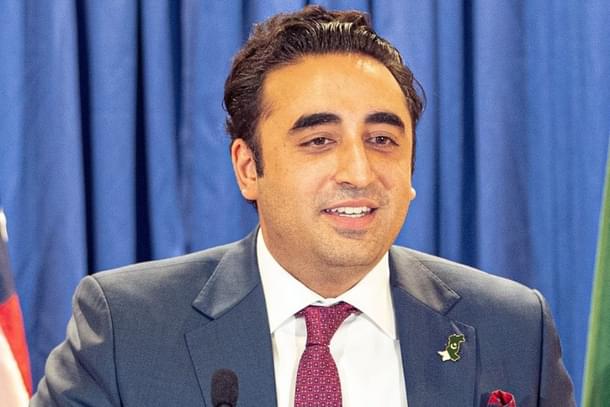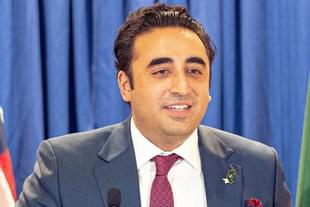News Brief
Bilawal Bhutto Echoes Defence Minister's Admission Of Pakistan's Terrorist Ties, Involvement In Global Conflicts
Arun Dhital
May 02, 2025, 04:44 PM | Updated 04:44 PM IST
Save & read from anywhere!
Bookmark stories for easy access on any device or the Swarajya app.


Bilawal Bhutto Zardari, the chairman of the Pakistan Peoples Party (PPP), acknowledged that Pakistan's previous connections to terrorist organisations have caused the nation distress.
However, he emphasised that the country has taken lessons from its past mistakes and implemented necessary reforms.
In an interview with Sky News’s Yalda Hakim on Thursday (1 May), Bilawal Bhutto said, as quoted by the Hindustan Times, “It is not a secret that Pakistan has a past... As a result, we have suffered, Pakistan has suffered. We have gone through wave after wave of extremism. But as a result of what we suffered, we also learned our lessons. We have gone through internal reforms to address this problem.”
The remarks were made just a few days following the confession of Pakistan's Defence Minister, Khawaja Asif, acknowledging that there had been previous instances of Pakistan providing financial assistance and support to terrorist organisations
“As far as Pakistan's history is concerned, it is history and it is not something that we are partaking in today. It is true that it is an unfortunate part of our history,” said Bhutto.
Despite acknowledging Pakistan’s troubled past, Bhutto attempted to balance his admission with calls for peace, stating at a rally that Pakistan seeks peace but will respond if provoked by India.
Bhutto went a step further, revealing Pakistan’s enduring strategy of backing cross-border terrorism. “During the Iran war, Pakistan’s dictatorship funded and supported Mujahideen with full coordination from Western powers,” he stated, admitting that Pakistan's actions were not carried out in isolation.
Pakistani Defence Minister Khwaja Asif, in an interview, also acknowledged Pakistan’s controversial role in global conflicts, admitting that the country had been “doing this dirty work for the United States for about three decades,” as well as for “the West, including Britain.”
He called it “a mistake” that led to long-term consequences for Pakistan, adding that if the country had not joined “the war against the Soviet Union and later on the war after 9/11,” its track record would have remained “unimpeachable.”




